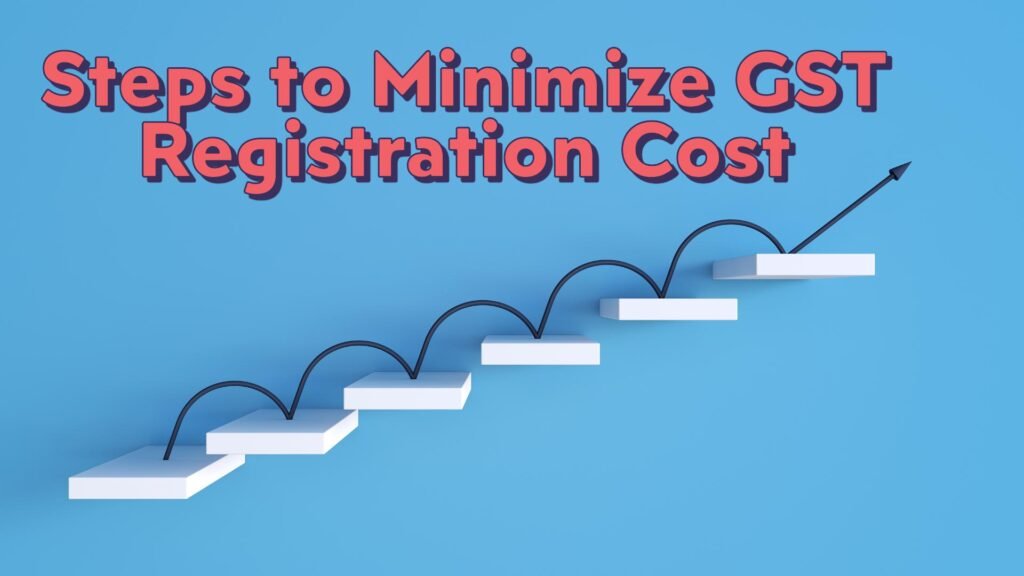What is GST?

A broad-based tax imposed on the delivery of goods and services is known as the Goods and Services Tax (GST). In Australia, GST is a consumption tax, meaning it’s ultimately borne by the end consumer.
Why is GST registration necessary?
You have to register for GST if your company provides products or services and your revenue exceeds the GST threshold. This is essential for:
- Compliance: Adhering to Australian tax laws.
- Claiming Input Tax Credits: Reclaiming GST paid on business expenses.
- Charging GST on Sales: Collecting GST from customers and remitting it to the Australian Taxation Office (ATO).
Overview of the GST registration process
The GST registration process in Australia involves the following steps:
- Determine Eligibility: Assess your business’s turnover and nature of operations to determine if GST registration is mandatory.
- Gather Required Documents: Prepare necessary documents, such as business registration certificates, identification proof, and bank details.
- Apply for GST Registration: Submit the application online through the ATO’s Business Portal or by mail.
- Receive GST Registration Number: Upon successful registration, the ATO will issue a unique GST registration number.
By understanding the GST registration cost and the process, you can ensure smooth compliance and efficient tax management for your Australian business.
GST Registration Cost

The cost of GST registration in Australia can vary depending on several factors, including the complexity of your business and whether you choose to handle the process yourself or hire a professional.
Government Fees:
- Base Fee: The Australian Taxation Office (ATO) charges a base fee for GST registration.
- Additional Fees: In some cases, additional fees may apply, such as for specific industry categories or complex business structures.
Professional Fees:
If you decide to engage a Chartered Accountant (CA) or tax consultant to assist with your GST registration, you’ll incur additional costs. These fees typically cover:
- Filing the Application: Preparing and submitting the necessary forms to the ATO.
- Document Preparation: Gathering and organizing required documents, such as business registration certificates and financial records.
- Compliance Assistance: Providing guidance on GST obligations, record-keeping requirements, and tax return filing.
- Other Services: Offering ongoing support and advice on various tax-related matters.
By understanding the GST registration cost and the factors that influence it, you can make informed decisions about your business’s financial obligations and seek professional help if needed.
Factors Affecting GST Registration Cost

Several factors can influence the overall GST registration cost for your Australian business:
1. Type of Business:
- Sole Trader: Generally, the simplest type of business to register for GST.
- Partnership: Requires more complex registration procedures and may incur higher fees.
- Company: Involves additional legal and compliance costs associated with company formation and registration.
2. State of Registration:
While GST is a national tax, state-specific regulations and fees may apply. For example, some states may have additional licensing requirements or stamp duty charges.
3. Complexity of Business:
- Number of Products/Services: A larger product or service range can increase the complexity of GST calculations and compliance.
- Supply Chain Complexity: Businesses with intricate supply chains, including multiple suppliers and distributors, may face more intricate GST considerations.
- Import-Export Activities: International trade involves specific GST rules and regulations, which can impact registration costs and ongoing compliance obligations.
By carefully considering these factors, you can estimate the potential GST registration cost for your Australian business and make informed decisions about your financial planning and compliance strategies.
Steps to Minimize GST Registration Cost

While the GST registration cost in Australia is relatively straightforward, there are strategies to minimize expenses and ensure a smooth registration process.
1. Do-It-Yourself (DIY) Registration:
- Understanding the Process: Familiarize yourself with the ATO’s guidelines and requirements for GST registration.
- Filing the Application Online: Utilize the ATO’s online portal to submit your application, which can often be a more efficient and cost-effective approach.
- Potential Challenges and Risks: Be aware of the potential challenges and risks associated with DIY registration, such as errors in the application or non-compliance with tax laws.
2. Hiring a CA/Tax Consultant:
- Benefits of Professional Assistance: Engaging a qualified CA or tax consultant can provide several benefits, including:
- Expert guidance and advice on GST compliance.
- Efficient and accurate completion of registration paperwork.
- Assistance with ongoing tax obligations and record-keeping.
- Representation in case of audits or disputes with the ATO.
- Cost-Effective Strategies: While hiring a professional may incur additional costs, it can often save time and money in the long run by preventing costly mistakes and ensuring compliance.
- Choosing the Right Professional: Select a CA or tax consultant with experience in GST matters and a good understanding of your business’s specific needs.
By carefully considering these factors and taking appropriate steps, you can minimize the GST registration cost for your Australian business and ensure a smooth and compliant registration process.
Conclusion
In conclusion, understanding the GST registration cost and the factors that influence it is crucial for Australian businesses. By carefully considering your business structure, state of registration, and the complexity of your operations, you can estimate the potential costs and make informed decisions.
While DIY registration may be an option for some businesses, hiring a qualified CA or tax consultant can provide valuable expertise and minimize the risk of errors. By leveraging professional assistance, you can streamline the process, ensure compliance, and potentially save time and money in the long run.

